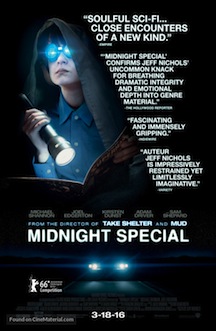Directed by Michael Showalter
Country: USA
“Hello, My name is Doris” is a little romantic comedy made in New York, which was co-written and directed by Michael Showalter, who has been dedicated to TV series since his debut in 2005 with the lame “The Baxter”.
The film brings Sally Field to the foreground through a magnificent performance. She plays the title character, a lunatic yet sympathetic dreamer, with pompous artistic style while bestows it a valid human dimension.
Doris Miller, a Staten Island dweller who was named after Doris Day by her late mother and suffers from hoarding disorder, is a middle-aged spinster who’s living a delicate romantic crisis that turns her little, yet complicated world, upside down.
After the first contact with John Fremont (Max Greenfield), her company’s new art director, something changed deeply in Doris who, boosted by the advice of a famous self-help seminar, decides to give herself a chance and get closer to the enchanting man. Despite the significant age gap between them, she’s motivated to start seeing the word ‘impossible’ as ‘I’m possible’, and pushed herself into him.
With the help of a 13-year-old girl (Isabella Acres), the granddaughter of her best friend, Roz (Tyne Daly), Doris creates a fake profile on the Internet (an attractive Ph.D.), to get more info about his tastes and life.
By realizing that his favorite band, Baby Goya and the Nuclear Winters, is going to perform in Williamsburg, Doris, always cheerfully dressed with colorful vintage outfits, rocks the party and becomes a popular attraction for the younger crowd and the band itself, whose leader asks her to be on their next album’s cover. This is probably the most hilarious passage of the film, which afterward embarks on the habitual backs and forths, or should I say hopes and deceptions, of a chimerical, devastating love.
When John’s charming new girlfriend, Brooklyn (Beth Behrs), pops in, the blue Doris feels she has to act to keep her dream alive.
Mr. Showalter fueled my curiosity for this simultaneously tender and ridiculous woman, using adequate satirical tones for that purpose. However, as the story moves forward, I had the perfect feeling that he didn’t dig so deep as he could, especially in respect to the not so plausible resolution of the predicaments.
He rather uses a shuffling technique that aims to confound us with realities and dreams and faint possibilities.
It’s excused to say that Ms. Field is the one responsible for the relative success of the film.








































